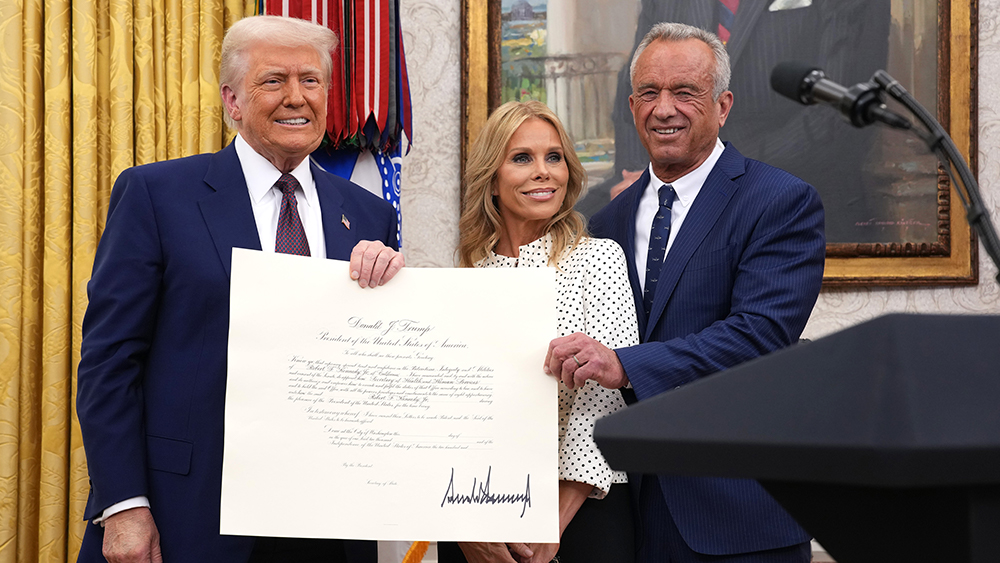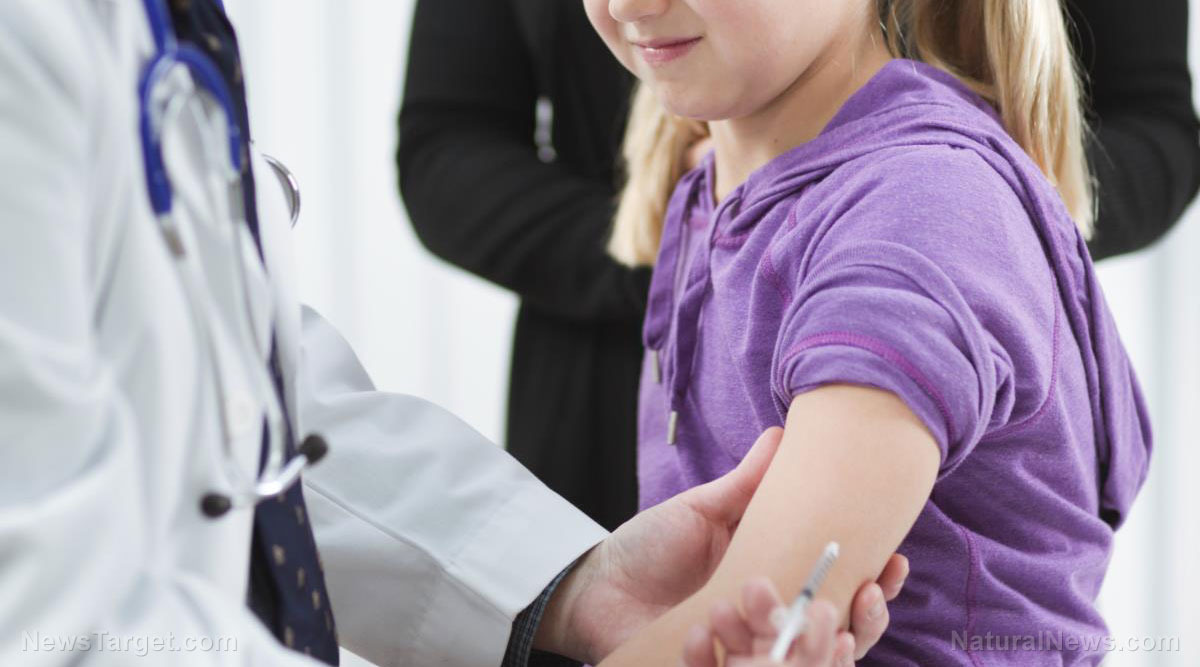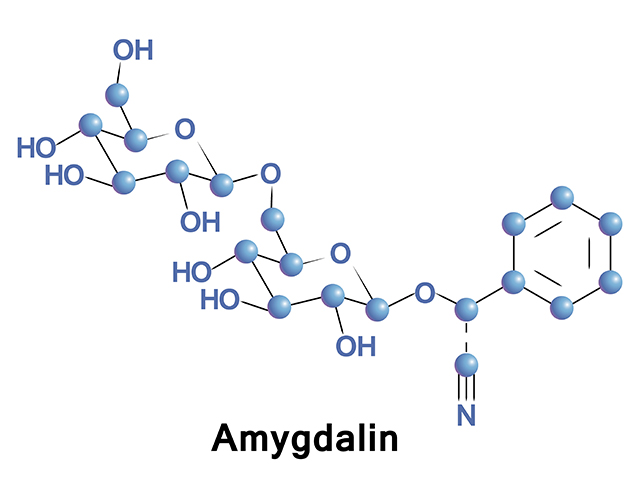 Parler
Parler Gab
Gab
- A UCSF study found vaccinated, COVID-naïve individuals were 5.8 to 7.2 times more likely to be hospitalized than unvaccinated people with prior infection. The data challenges previous claims that vaccines reduce severe outcomes, suggesting instead a higher risk for the vaccinated group.
- The findings are highly statistically significant (p-value 4e-15), making chance an unlikely explanation. Critics question why such risks weren’t detected in clinical trials, calling the oversight a "broken" system.
- Though indirect, modeled estimates suggest vaccinated individuals may be 3 to 6 times more likely to die than their unvaccinated peers. Concerns about cardiovascular and neurological complications linked to vaccines add weight to the findings.
- Public health messaging previously framed vaccines as low-risk and essential, while the study suggests the opposite for certain groups. Delayed publication (two years post-rollout) has fueled accusations of data suppression and eroded institutional trust.
- Critics demand reexamination of vaccine policies, citing ethics, informed consent and natural immunity. The study underscores the need for independent research, transparency and candid dialogue to rebuild public trust in health institutions.
"The cure is worse than the disease": Study details and implications
The study’s authors analyzed data from nearly 30,000 participants, comparing hospitalization rates among two groups: vaccinated individuals with no prior infection and unvaccinated individuals who had recovered from COVID-19. The results were stark: Vaccinated people had a 5.89 risk ratio (RR) for hospitalization, with a 95% confidence interval of 4.80 to 7.22, meaning those in the vaccinated group were 5.8 to 7.2 times more likely to be hospitalized than the unvaccinated group. “This didn’t happen by chance,” emphasized Steve Kirsch, an early pandemic advocate and critic of vaccine policies, who reviewed the study. “The odds [p-value of 4e-15] are astronomical, and the effect size is monstrous. The medical community needs to explain why a signal this huge didn’t surface in clinical trials.” The findings also suggest potential mortality consequences. Although the study’s mortality data is imputed through modeled estimates, the report cites an analysis by ChatGPT, a language model, which inferred vaccinated individuals may have been 3 to 6 times more likely to die than unvaccinated peers with similar exposures. This conclusion, while indirect, underscores concerns about adverse events linked to the vaccine, such as cardiovascular and neurological complications, which have raised alarms in prior research.A turn in the tide: Shifting risk perceptions
The paradigm shift revealed by the UCSF study contradicts earlier messaging that emphasized vaccines as the primary defense against severe outcomes. Public health authorities and media outlets repeatedly promoted vaccines as reducing hospitalization and mortality risks. However, the new data suggests precisely the opposite for a significant segment of the population:- Vaccinated individuals (naïve to infection): 6.24% hospitalization rate.
- Unvaccinated individuals (post infection): 1.06% hospitalization rate.
Criticism loosens: Calls for accountability and transparency
The UCSF study’s revelations have already drawn scrutiny from medical professionals and health advocates. Dr. Jane Orient, executive director of the Association of American Physicians and Surgeons, questioned the ethics of current vaccination campaigns in a statement to The Epoch Times: “I do not understand how a physician dedicated to patient care would interpret this data as grounds for endorsing additional shots.” Critics argue the findings are particularly damning because the initial clinical trials, which guided early vaccine rollouts, failed to detect the now-evident risks. “How could a trial estimate this?” asked Kirsch. “The signal is too loud to ignore. The system is broken.” Public trust in institutions has further eroded as details of the study’s publication date — a full two years after mass vaccination began — surface. The CDC and major media outlets, Kirsch noted, “were silent on this data despite its implications.” The delay has sparked accusations of suppression, particularly as similar UK studies begin to corroborate increased post-vaccine hospitalizations.A call for reassessment: Can trust be restored?
The study’s release coincides with a growing global debate about vaccine mandates, long-term side effects and informed consent. For health experts advocating for natural immunity or alternative safeguards, it serves as validation against years of stigmatization. Meanwhile, the medical establishment has largely remained silent, with some sources dismissing the paper’s preprint status without offering alternative explanations. As researchers like Dr. Bhargava continue to test the data’s validity, the implications for public health are profound. The report’s authors emphasize the need for rigorous follow-up studies and an immediate reevaluation of vaccination strategies. “This isn’t just about the past,” Kirsch concluded. “It’s about the future. If we can’t trust the frameworks that prioritize health decisions, then the [Hippocratic Oath] is a joke, and the public deserves better.”Final word: A crossroads in health policy
The UCSF study forces policymakers, doctors and the public to confront uncomfortable truths about risk, transparency and the limits of clinical certainty. As debates over vaccine efficacy and trust intensify, its findings underscore the urgent need for candid dialogue—one that prioritizes independent research, patient autonomy and the profound complexities of post-pandemic healing. Sources include: Substack.com ThePeoplesVoice.tv SGTreport.comHealth Ranger Report: Dr. Suzanne Humphries discusses RFK Jr.’s SECRET BATTLE against the HHS swamp
By Kevin Hughes // Share
Moderna faces suspension over ethical violations in COVID-19 vaccine trials
By Laura Harris // Share
Study highlights the power of EXERCISE against dementia
By Ava Grace // Share
If October 7 justifies the Gaza genocide, what acts of violence will the Gaza genocide justify?
By News Editors // Share
Ultra-processed foods and poor sleep: Breaking the link through dietary choices
By Willow Tohi // Share
Governments continue to obscure COVID-19 vaccine data amid rising concerns over excess deaths
By patricklewis // Share
Tech giant Microsoft backs EXTINCTION with its support of carbon capture programs
By ramontomeydw // Share
Germany to resume arms exports to Israel despite repeated ceasefire violations
By isabelle // Share










